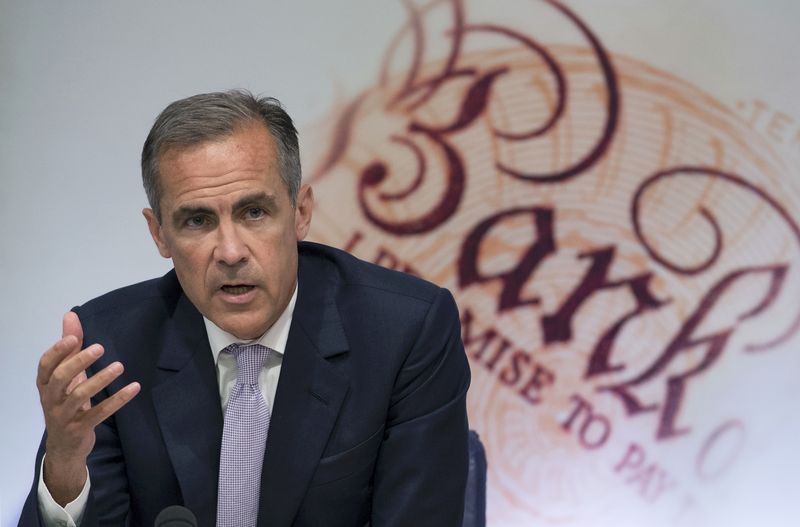Street Calls of the Week
(Bloomberg) -- Mark Carney defended the Bank of England’s forecasts ahead of Brexit, saying they correctly showed the economy would suffer.
“What we said prior to the referendum is that we thought the exchange rate would fall, perhaps sharply, inflation would go up, and growth would slow,” the BOE governor told the House of Lords economic affairs committee on Tuesday. “After the referendum, the pound fell, sharply, inflation went up, and growth slowed.”
Business investment is likely 4 percent lower than it would’ve been had the U.K. voted to stay in the bloc and real household incomes have gone down by about 3.5 percent since the referendum, he said. Carney has faced scrutiny since before the vote in 2016 amid accusations that the bank’s forecasts have been too gloomy.
Read more: BOE Rate Hike Bets Climb as Traders Put May and August in Play
Norman Lamont, one of the committee members and a former Chancellor of the Exchequer, asked if the BOE had a cognitive bias against Brexit. Carney denied it. He also said that investment could pick up again next year when more uncertainty from Brexit lifts.
“There are some headwinds to this economy that we all want to see cleared,” Carney said.
Trade-Off Diminishes
The BOE has both cut and raised rates since the referendum as policy makers attempt to balance accelerating price gains -- boosted by the pound’s fall and weak productivity -- against a backdrop of slowing growth. Carney said the pound’s depreciation is still working its way through the inflation data, but the trade-off between growth and inflation has diminished.
“As slack in the economy has been taken out, we’ve moved into a more conventional area for monetary policy where the focus is increasingly on returning inflation sustainably to target over an appropriate horizon,” he said.
Officials will announce their next policy decision on Feb. 8 alongside new predictions for growth and inflation.
Government forecasts on the economic impact of leaving the European Union were leaked on Monday evening, reigniting the debate as to whether forecasters have over-estimated the adverse impacts of Brexit. The analysis modeled three scenarios, from no trade deal with the EU to membership of the European Economic Area, and showed that all would bludgeon growth.
Asked if the bank has carried out a similar exercise on the long-term outcome, Carney said that policy makers usually look out to only a three-year horizon. In terms of financial stability, officials do “assess if there were to be a disorderly Brexit,” which isn’t a likely scenario but one the central bank can plan for.
“When the negotiations mature to a point where we know where we’re headed and when we get there, then we will have to do that sort of analysis and adjust the forecasts accordingly,” he said.
